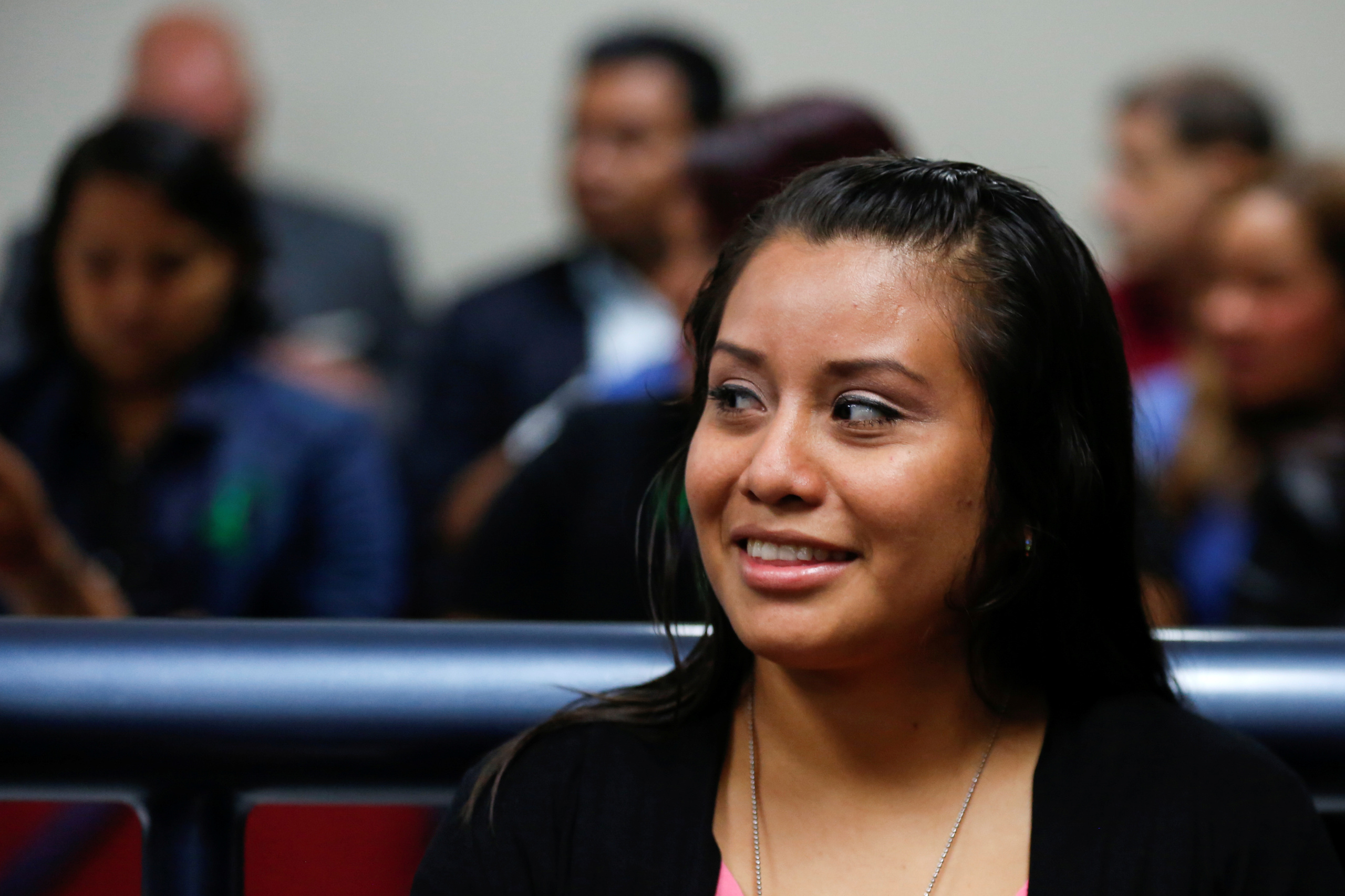© Photo of Evelyn Hernandez by REUTERS/Jose Cabezas
The Clooney Foundation for Justice’s TrialWatch initiative monitored criminal proceedings against Evelyn Hernandez and “Diana,” women charged with murder in El Salvador after being treated for obstetric emergencies after they gave birth in their homes.
The two reports released today detail the human rights violations against the two women—one of whom was pregnant as a result of a rape—because of El Salvador’s draconian and discriminatory approach to reproductive healthcare. The TrialWatch experts assigned Evelyn’s case a grade of “D,” while Diana’s trial received a “C.”
Amal Clooney, co-President of the Clooney Foundation for Justice, said, “It is unconscionable that El Salvador continues to treat women who are victims of medical emergencies as criminals. El Salvador should reform its law to comply with international human rights norms and respect the rights of women.”
Though the defendants in these cases were not convicted, their trials are part of a pattern of persecution. Over the past two decades, El Salvador courts have convicted and imprisoned dozens of women for up to 40 years because they had an abortion or simply suffered a miscarriage— with the majority being women of limited means. Many of these women were brought to the attention of the police by healthcare professionals who themselves fear prosecution for not reporting abortions or obstetric complications.
CFJ calls on El Salvador to repeal laws criminalizing women’s reproductive health and ensure the authorities do not discriminate against women through unfair prosecutions and trials.
Background
Professor Juliet Sorensen, Clinical Professor of Law, Center for International Human Rights at Northwestern University, and staff at the American Bar Association Center for Human Rights conclude in the Fairness Reports assessing these trials that the proceedings against Ms. Hernandez were “marred by due process violations” and “reflected a reliance on gender stereotypes.” In Diana’s case, the proceedings violated “a number of her rights, including the right to liberty, the right to freedom from cruel, inhuman or degrading treatment, and the right to privacy.”
Both women were arrested while seeking medical treatment for obstetric emergencies that occurred while they were at home. Despite a dearth of evidence, both were subsequently charged with aggravated homicide. Indeed, in Diana’s case, a representative of the prosecutor’s office was overheard stating that homicide was ‘the only thing that could have happened’ immediately after arriving at Diana’s house; further, the prosecution either did not have medical information on the child’s cause of death at the time of the indictment—or withheld that information from the defense. Ms. Hernandez and Diana were also subjected to unjustified pretrial detention and, in Diana’s case, to violations of her right to humane treatment, even after she attempted suicide in detention.
Both women were victims of the discriminatory application of El Salvador’s criminal laws to women— especially poor women—who need medical care for pregnancy complications but are instead treated as criminals. Further, in Ms. Hernandez’s case, “the prosecution cited her alleged concealment of her pregnancy as evidence of malice aforethought,” an “unsubstantiated ascription of intent” suggestive of an outdated discriminatory view and presumption of guilt.
While CFJ welcomes the fact that Ms. Hernandez was acquitted and the charges against Diana were dismissed, the cases against these women were flawed from the start. In line with recent decisions by the Inter-American Commission on Human Rights and the UN Working Group on Arbitrary Detention, El Salvador should take immediate action to end “discriminatory institutional practices within criminal law and the healthcare sector” and ensure that women undergoing obstetric emergencies or suffering miscarriages are able to access reproductive healthcare without fear of “accusations of aggravated homicide” in which “‘the[ir] guilt . . . [is] assumed.’”
Note: Diana’s name was changed for anonymity.
For a full legal analysis of the trials and explanation of the grades that have been provided, please see here and here.
View in Spanish (Español).
